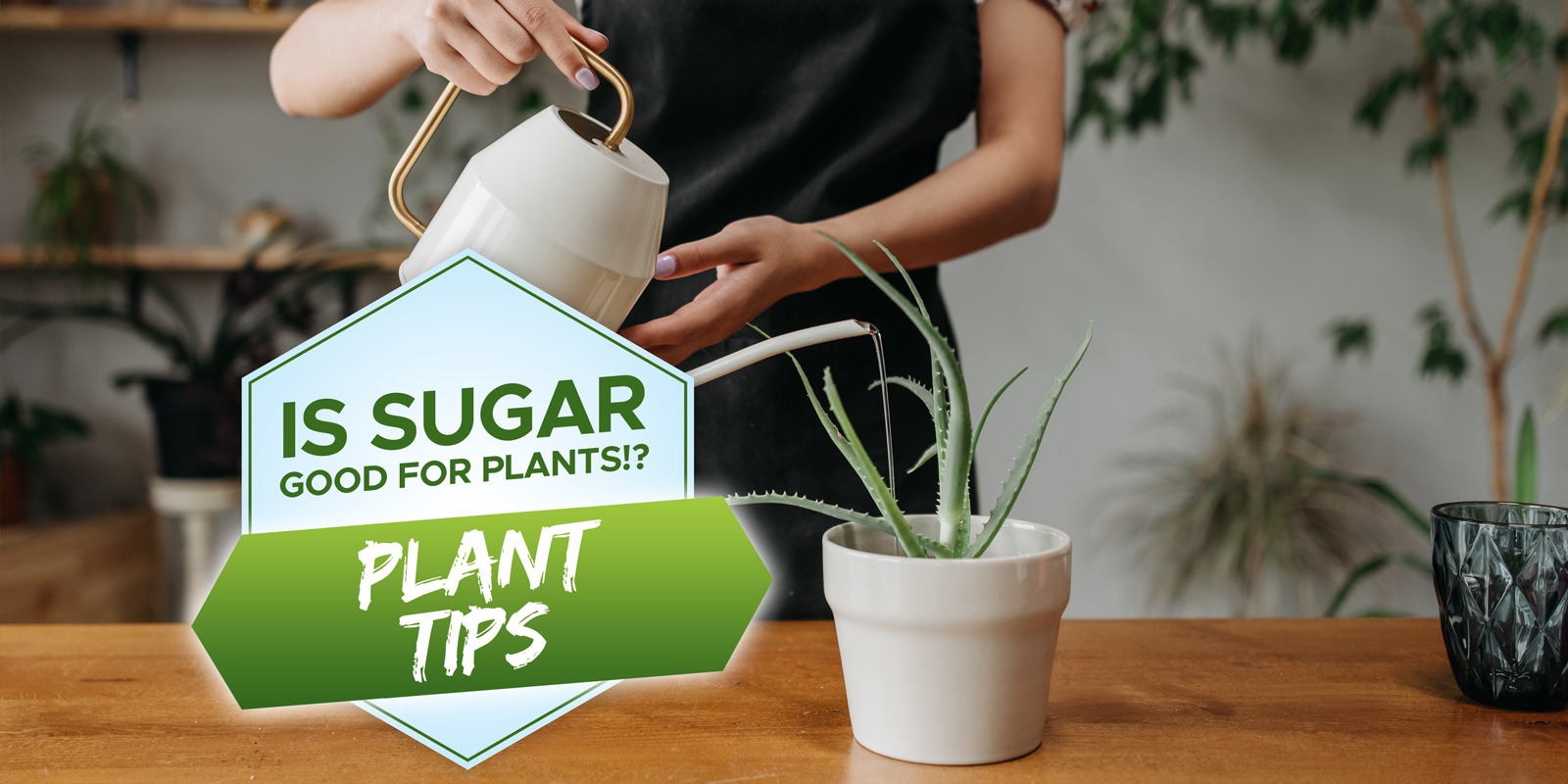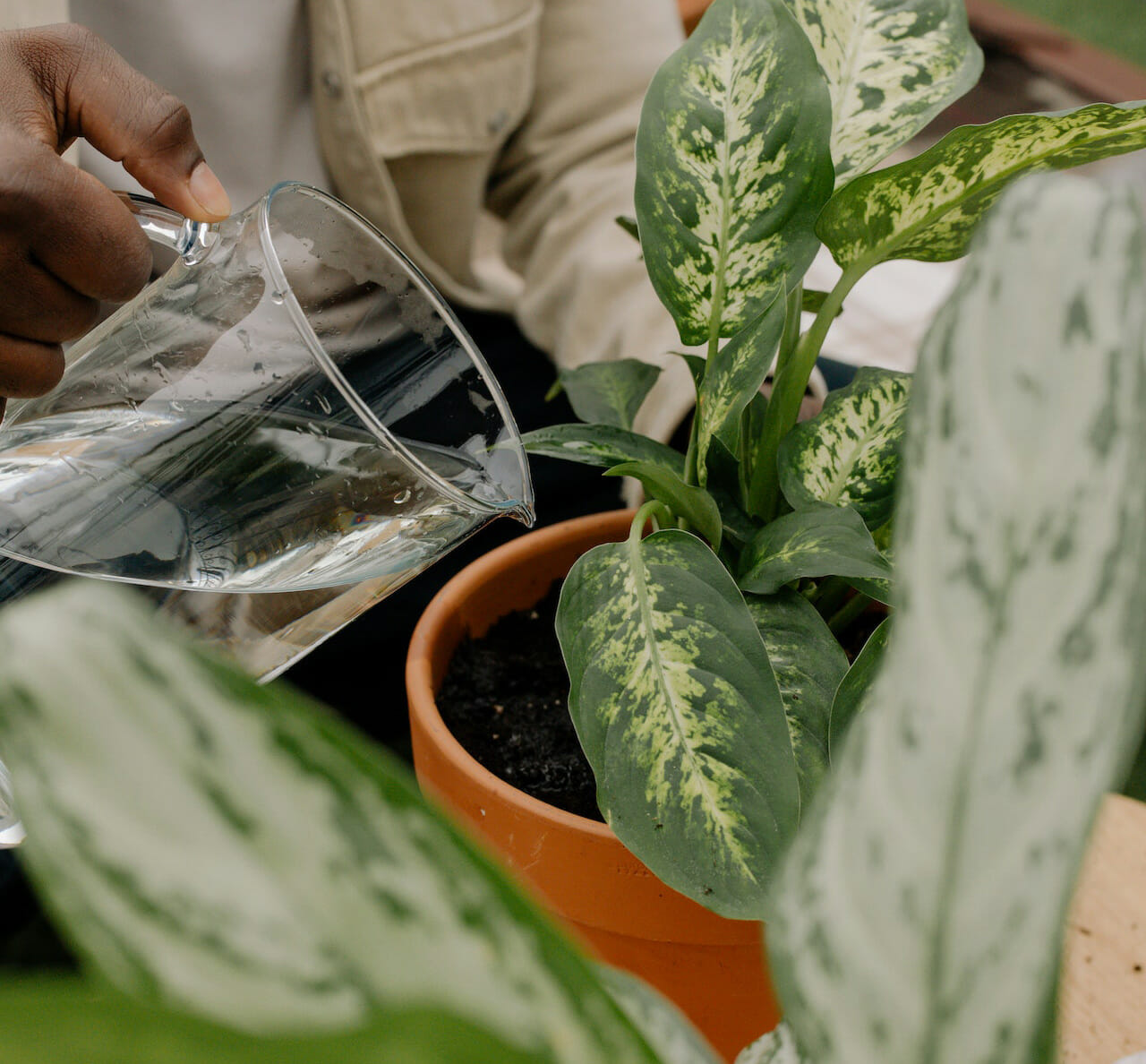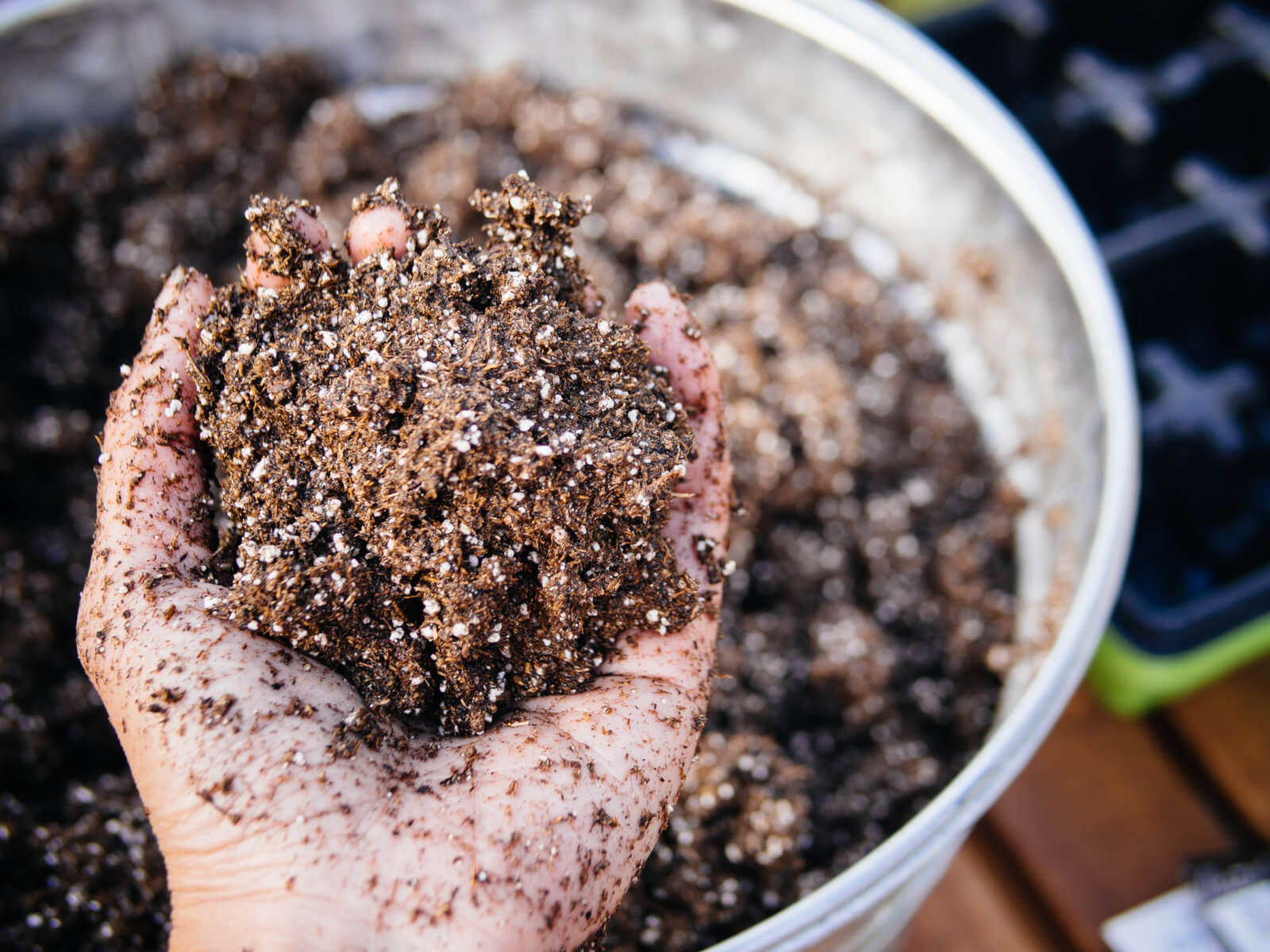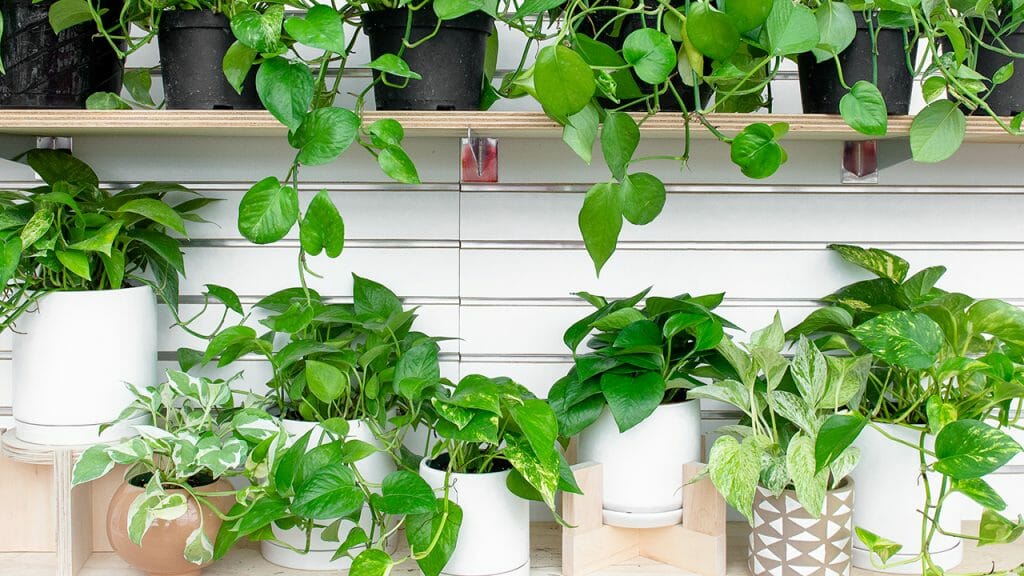We all want to do whatever we can to help our plants not only grow but thrive. You may have heard before that watering your plants with sugar water will help them grow faster and stronger. On the surface, it makes sense, is sugar good for plants? Yes, since plants need sugar to form the energy they need to grow. But will this method actually do anything or are you better off saving your sugar for other uses?
Will adding sugar water to your plants help them grow? Unfortunately, no. While it’s true that sugar is a vital part of what helps a plant grow, plants make their own sugar during the process of photosynthesis. There’s no scientific evidence that sugar water aids plant growth, and it can backfire; adding too much extra sugar to your plant in the form of sugar water might actually be harmful.
In this article, we will discuss how a plant uses sugar to grow, why adding excess sugar to your plant’s water may be harmful, and the rare instances in which you may want to use sugar water to help your plant.
How Do Plants Use Sugar To Grow?
Plants are autotrophs, meaning that they create their own food during photosynthesis in the form of glucose, a kind of sugar. Glucose provides your plant with the energy it needs to grow. They also create another form of sugar called sucrose, similar to standard refined sugar.
Simply put, photosynthesis is the process by which a plant absorbs water and sunlight and converts it into glucose and oxygen. The glucose is then essentially used as food to help the plant grow.
A plant needs light from the sun, water, and nutrients from the soil to grow properly, and when those conditions are met, it can produce its own food easily. Check out this chart below for a more detailed look at what plants need to grow and produce their own food:
| Elements of Photosynthesis | |
| Sunlight | Sunlight is the basic building block your plants use to trigger photosynthesis and create your own food. In fact, your plant cannot create its own food without light, since the process of photosynthesis is the process of converting the energy light into a usable energy called glucose. |
| Water | Water, along with sunlight, are the two “ingredients” your plant needs to create glucose, which is then broken down into carbohydrates that help your plant grow. Too much can cause the roots to rot and kill the plant, while too little will mean your plant can’t grow and will wither and die. |
| Air | Plants need proper access to air circulation for photosynthesis to work. During this process, carbon dioxide in the air is absorbed and oxygen is expelled, so if there’s not enough CO2 in the environment, your plant can’t process it into oxygen the way it needs to. |
| Soil | Proper soil is full of micro and macronutrients that help the plant grow healthy and strong. Whether it’s been artificially fortified, like with commercial potting soil, or naturally sourced, like with outdoor plants, your plant needs those nutrients to thrive. |
| Temperature | The right temperature is crucial when it comes to helping your plants grow the best they can. Plants all over the world have evolved to survive in certain conditions, so they need to be in those conditions to thrive. Tropical plants need warm, humid temperatures while cacti grow best in hot, dry conditions. Most plants won’t survive in the cold, so it’s important to know your plant and what it needs. |
How Can Adding Sugar To Plants Be Harmful?
It’s not hard to see how this method might seem to make sense. Plants need sugar (glucose and sucrose) to grow. So by adding more sugar to the plant’s environment, can’t it absorb the sugar through its roots? After all, more sugar equals more energy, right?
Remember, the glucose that plants create during photosynthesis is not the same as the kind of sugar you would purchase at the store. Table sugar is a refined form of sucrose, which has a different chemical makeup than glucose and cannot be used for the same purposes in the plant.
While it’s true that plants also produce sucrose during photosynthesis, the two compounds serve different purposes.
In addition, your plant’s roots can’t just suck up the sugar from the soil directly, so adding sugar to your plant water is at best ineffective. At worst, too much sugar in the soil could cause the plant to go through a process of reverse osmosis and lose water, causing the plant to wither and die.
Is Sugar Water Good For Plants? Ever?
There are a few instances in which feeding your plant sugar water may be helpful rather than harmful. Just remember, excess sugar can easily cause mre
- It’s possible that adding sugar water to your plant’s soil may attract beneficial insects and help deter harmful ones. A University of Nebraska-Lincoln study showed the possible link between added sugar and the attraction of insects that are beneficial, rather than harmful to the plant’s growth. However, these findings are not conclusive.
- Sugar water may help preserve cut flowers and keep them from wilting longer. While sugar might not help your plant grow, you can keep flowers fresher longer by including a little in your flower vase. About a teaspoon is all you need to give your cut plants a little bit of life again, but too much will have the opposite effect.
What Other Methods Will Help a Plant Grow Better?
While adding sugar to your plant is rarely a good idea, there are still other tips and tricks you can use to help your plant grow as big and healthy as possible.
- Learn everything you can about your plant. Every plant is different and requires its own special conditions. What are the light and water requirements? What temperatures will help your plant thrive? You should be sure that your plants are growing in ideal conditions before changing their feeding or watering schedules.
- Pot your plants in the correct potting soil. Not every potting soil is created equal. In fact, many are specifically formulated for certain types of plants. While some are meant to retain moisture, others meant for cacti and succulents are fast-draining. Make sure your plant is housed in the correct soil type, and it will have an easier time growing strong.
- Use store-bought plant food. Plant food comes in endless varieties and styles, so you’re sure to find one that works for your favorite plant care methods. Make sure you’re feeding your plant with a formula designed for the kind of plant you’re feeding, and you’ll see much better results than you will with sugar water.
- Use fertilizer. Fertilizers are by far the most effective method for causing noticeable plant growth. By adding essential nutrients like nitrogen, potassium, and phosphorus to the soil, your plants have a richer growing environment and will be able to grow faster and stronger.
Frequently Asked Questions:
What factors affect plant growth the most?
Under the right conditions, a plant should have no problem producing its own glucose and. A plant essentially only needs adequate amounts of sunlight and water, properly nutritious soil, the right temperature, and enough time to create the conditions it needs to grow. While we want to give our plants every advantage, sometimes it’s best to let Mother Nature take over!
What’s the difference between plant food and fertilizer?
Fertilizer is a synthetic substance created specifically to contain the nutrients needed for plants to grow. It’s only available commercially and is not naturally occurring. Plant food, on the other hand, is naturally occurring and created by the plant itself. You can also use outside sources, like commercially available plant food or compost if needed.
How is table sugar different from the sugar plants need to grow?
Glucose is a kind of sugar, just like sucrose and fructose are different kinds of sugars. But plant’s can’t survive on fructose and sucrose, which is why they break down glucose into carbohydrates and proteins. The table sugar you buy at the store is a refined sucrose and doesn’t break down the same way as glucose does.
Is sugar water good for aloe vera plants?
There is no definitive answer to this question since every plant is different and responds differently to various types of care. Some gardeners report that adding sugar to the water helps their aloe vera plants thrive, while others see no difference. Ultimately, it’s up to the individual gardener to experiment and see what works best for their own plants.
Is sugar good for your lawn?
No, sugar is not good for your lawn. Sugar can actually damage your lawn by promoting the growth of fungi and bacteria. In addition, sugar can attract pests such as ants and termites. Therefore, it is best to avoid using sugar on your lawn.
Conclusion
So, is sugar good for plants? Adding sugar to your plants is mostly just an urban legend, but it seems logical at first glance. Since plants need sugar to grow, wouldn’t adding more sugar only help? Best case, sugar water for dying plants could help it. Worst case, it could kill your plant outright. In most cases, feeding your plant with specially formulated plant foods will help them grow stronger and healthier than sugar water ever will.





